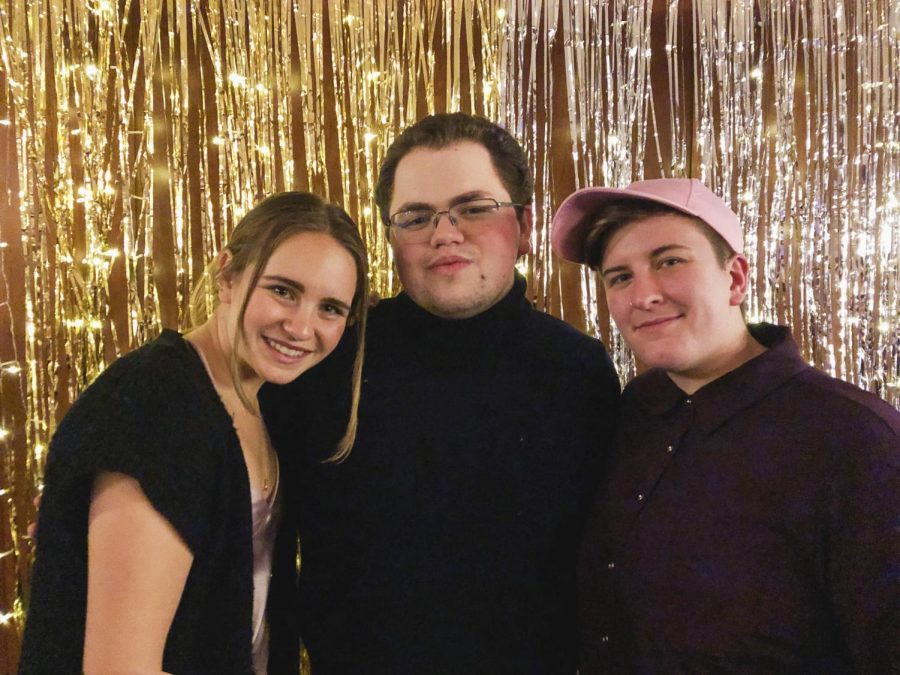My Jesuit Values: A Meditation on Residential Life, Service and Community
PHOTO COURTESY OF KYLE KILKENNY
Kilkenny and other RAs seek to instill “real” Jesuit values in the students they care for.
April 30, 2019
The views expressed in this article do not reflect those of the Office of Residential Life, the Division of Student Affairs or Fordham University.
I have been a Resident Assistant (RA) for the past two years. When I applied to be an RA, I thought I knew what this job would look like — putting up bulletin boards, handing out free coffee and being on duty. But the biggest lesson I have learned as an RA is that our principle role is largely misunderstood.
RAs and Resident Freshmen Mentors (RFMs) are the most unique student leaders on campus, crafting educational programs and setting community standards.
Over the past several years, the Office of Residential Life (ORL) and their policies have been challenged, particularly guest and visitation guidelines and accommodations for transgender and gender non-conforming (TGNC) students. Criticisms are commonly steeped in the rhetoric that Fordham perpetuates restrictions based on their so-called “Jesuit values.” These “values” presumably refer to tenets like “Cura Personalis,” “Magis,” and “Men and Women For and With Others.” Oftentimes, I am unsure if my fellow students understand what Ignatian spirituality truly is, and how it has shaped the identity of this institution.
As a gay man and a practicing Catholic, I certainly do not require a lesson on the shortcomings of Catholicism, but I reject the assertion that Fordham and its administrators are unbothered by the sentiments of students. In fact, the ORL staff engages with the needs of students because of these Jesuit values, rather than in spite of them. Ignatian spirituality challenges folks to discern their values and to find what empowers them to initiate change. St. Ignatius of Loyola, the founder of the Society of Jesus, was deeply perturbed by injustice and inequity, and Fordham aims to empower leaders who believe in something greater than themselves. For some people it is God, for some it is joy and for some it is intersectional, unadulterated, equality — perhaps all three.
With this in mind, I sent written interview requests to all RAs and RFMs, asking them how they believe ORL can best serve historically disadvantaged communities on and off campus.
Audrey Fenter, Fordham College at Lincoln Center (FCLC) ’19, wrote, “As a Queer RA with non-traditional gender expression, I have deep investment in my residents’ safety, comfortability and inclusion. In my position, I am out and proud.” Fenter continued, “know your resources are there,” citing the Office of Multicultural Affairs, Campus Ministry, Counseling and Psychological Services, faculty and Public Safety.
Fenter wrote, “The people who run these offices are individually empowered to help our TGNC, POC [people of color], disabled and queer students,” and, “I urge you to talk through your grievances directly with these individuals, rather than focus on policy.”
Eleanor Frechette, FCLC ’19, wrote, “For me, continuously being an active listener and always working in partnership with your residents to amplify their voices is essential. We’re all on a team, and residents are a central part to that. When we don’t know the answers, we ask, [we] have conversations, we work together.” Frechette continued, “Using privilege to amplify other voices, not to speak on behalf of others, is how I want my community to run.”
There are also several initiatives spearheaded by ORL to educate students on social justice issues. ORL’s Committee on Action and Learning (COAL) provides a space where staff can develop programs surrounding inequity in today’s world. This year, COAL hosted programs like Pizza for Holiday Cheer, a fundraiser to buy presents for children of incarcerated folks, and Criminal Justice: Criminally Unjust?, an expert panel on serving local immigrant and incarcerated communities.
In addition, next fall, freshmen who took part in a separate application process will live in one of Lincoln Center’s first Integrated Learning Communities, titled “Rams in Action.” This program will immerse students in local community projects assisting struggling New Yorkers, teaching residents to be good neighbors both inside and outside of the residence hall.
As evidenced by these initiatives, the aim of ORL is not to police communities, but rather break bread with them and act as an access point to other resources on campus. Therefore, I encourage students who seek to amend existing policies to be understanding of the slow process of bureaucratic change. Individuals who work at Fordham want to hear from students, and constructive conversation is the first step in bettering the entire university. It may take a minute, but it is possible.
That said, four years is a short time. So, get involved, become a student leader and occupy spaces where you can amplify your voice and those of your peers. Let us relish in being bothered, seek ways to build bridges to our larger community and transform Fordham into a place better than when we found it.
Those are my Jesuit values.










